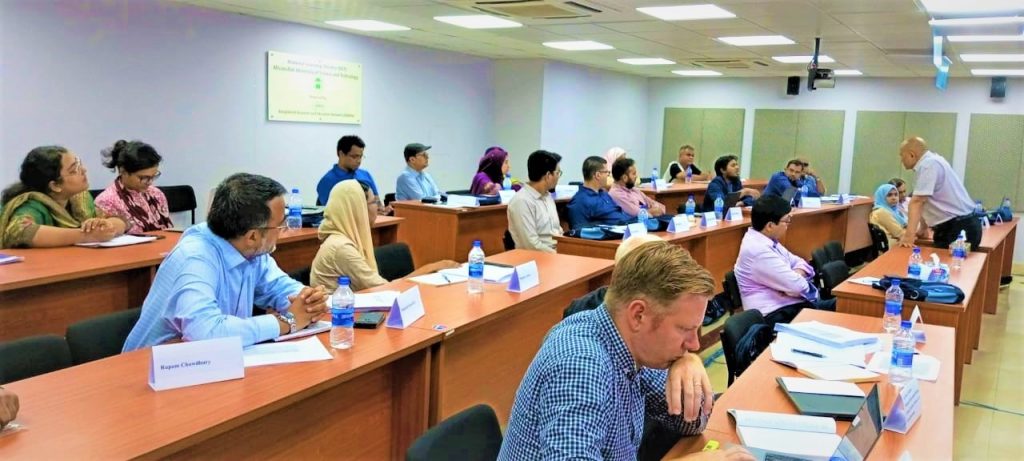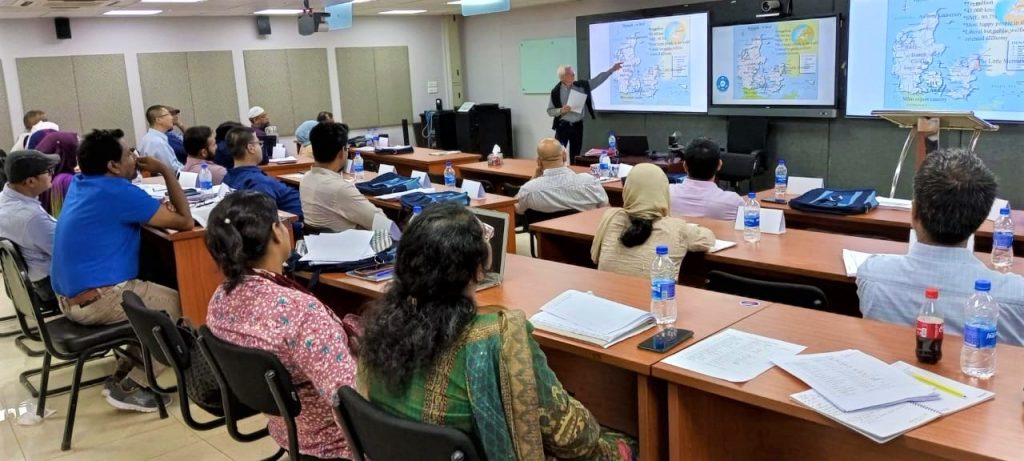5 ECTS PhD Course organized by CREATE-Research Project titled “Sustainability and Circular Economy in a Methodological Perspective.”

CREATE Project organized a 5-ECTS PhD course titled “Sustainability and Circular Economy in a Methodological Perspective“, which is offered to Bangladeshi PhD students either enrolled in Bangladeshi public universities or Danish Universities under DANIDA fellowship. The course is approved by the PhD School of Social Sciences and Humanities at Aalborg University, and arranged by CREATE project in partnership with The Sustainability Lab at AAU Business School (AAUBS) and the Business School of Ahsanullah University of Science and Technology, Dhaka, on 1st-5th August, 2023.
A total of 20 PhD students participated in the course. Some of them were Bangladeshi PhD Students from Bangladeshi Universities and some of them were DANIDA Funded PhD Students from Denmark.
Dr. M. B. Rana, Associate Professor & Director of Sustainability Lab at AAUBS, Asso. Professor Dr. Jonas S. Eduardsen (AAUBS), Olav Jull Sørensen, Former Emeritus Professor of Aalborg University and Dr. Imranul Hoque, Professor at Jagannath University, lectured in the course.

The primary objectives of the course were:
- Enhancing participants’ familiarity with scientific methodologies relevant to sustainability and circular economy research.
- Encouraging interdisciplinary conversations and collaborations among participants.
- Providing insights into the core principles of Research Methodology (qualitative and quantitative methodologies including case studies, storytelling science and critical incident techniques, and systematic literature review techniques).
- Empowering participants to undertake impactful research in the areas of sustainability and circular economy.

Course Structure and Activities:
The course design includes a variety of activities, such as:
- Comprehensive lectures on sustainability theories, circular economy frameworks, and advanced research methodologies.
- Interactive workshops diving into case studies, best practices, and real-world applications of sustainability and circular economy concepts.
- Engaging sessions focusing on data collection, analysis techniques, and interpretation strategies.
- Collaborative group projects offering participants a chance to apply the course concepts in practical scenarios.
- Opportunities to interact with guest speakers and experts from both academia and industry.

Key Outcomes:
- Participants attained a solid foundation on sustainability and circular economy principles.
- Increased proficiency in selecting and utilizing suitable research methodologies in connection with the right ontology and epistemology.
- Strengthened ability to critically analyze and address sustainability-related challenges.
- Enhanced collaboration and networking among participants representing diverse academic and cultural backgrounds.
- Successful completion of group projects showcasing the real-world application of course concepts.
While this course has fostered interdisciplinary exchange, methodological skill development, and knowledge dissemination, it has also contributed to the academic development and enrichment of all participants on sustainability and circular economy research in Bangladesh.